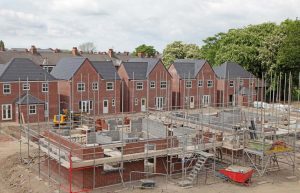 The Chancellor pulled the proverbial rabbit out of the hat today with a stamp duty exemption for first time buyers up to £300K. This was part of his promise to fix Britain’s housing market with a package of measures including; investment, planning reform and tax cuts for first-time buyers, as mentioned.
The Chancellor pulled the proverbial rabbit out of the hat today with a stamp duty exemption for first time buyers up to £300K. This was part of his promise to fix Britain’s housing market with a package of measures including; investment, planning reform and tax cuts for first-time buyers, as mentioned.
Lets also look at the other announcements today;
-
-
- Government committed to deliver an average of 300,000 homes a year by the middle of the next decade, the biggest annual increase in housing supply since 1970.
- Since 2010, Government overseen over 1 million new homes being built. Housebuilding is at its highest level since the crash, but housing remains unaffordable for many.
- Abolishing stamp duty for over 80 per cent of first time buyers – up to £300,000. The exemption will also be available to properties up to £500,000. This means an effective discount of up to £5,000 for a property of £500,000.
- Investing an additional £15 billion for housebuilding – taking the total this Parliament to £44 billion. To include; £2.7 billion to double the housing infrastructure fund, £1.7 billion to unlock small and strategic sites, £400 million on estate regeneration, £1.5 billion to support SME builders, and provide £8 billion on guarantees – committing a total of £44 billion over the next five years.
- Helping Local Authorities to deliver new homes – The Homes and Communities Agency will expand to become ‘Homes England’ bringing together money, expertise, and planning and compulsory purchase powers with a clear remit to facilitate delivery of sufficient new homes, where they are most needed, to achieve our goal and to deliver a sustained improvement in affordability.
- Reforming planning to unlock land for homes. Government maintains to protect our green belt, and make better use of urban land. They will consult on introducing minimum density rules in urban areas and near transport hubs, and expect councils to permit more homes for first time buyers.
- Getting the skilled workforce in place to construct the homes. Funding to provide £40 million to develop construction skills across the country, so to create skilled jobs and build the high quality homes needed.
-
- Driving the housing market will be crucial to addressing the downgrade in the UK’s economic prospects. The OBR cut the projected growth rate for 2017 from 2 per cent to 1.5 per cent. That said the Stock Exchange reacted well, with the FTSE 100 share index rising 0.1 per cent to 7,453.65, its highest close in eight sessions.The Chancellor stated, “Put simply, successive governments over decades have failed to build enough homes to deliver the home-owning dream that this country has always been proud of“. Lets hope this Government can succeed where others have not.


